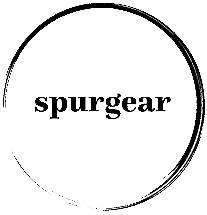Gears are the mostly found transmission elements. In a typical equipment assembly, one toothed wheel interlocks with another. Gearboxes can be used to deliver power or switch direction.
Plastic-type gears, as the term suggests are constructed of plastic instead of metal. Included in these are worm gears, spur gears, helical gears, pinion gears, tooth gears, bevel gears, and planetary gears. The material can be a mixture of Nylon (Nylon PA6 or Nylon PA66) and POM (Polyoxymethylene).
Advantages of Plastic Gear:
They can easily can be found in various shapes.
Plastic-type gears are relatively affordable.
They  produce lower noise in comparison to metal gears.
produce lower noise in comparison to metal gears.
They are resistant to plastic worm gear deterioration because they have low friction coefficient.
Lightweight
Resistant to corrosion
Self-lubricated
These gears are being used extensively in various power transmission and movement control systems. Though we’ve listed simply five types of plastic gears, we also give customized gears as per client’s specifications.
1. Plastic Spur Gear
Module: M0.1 – M2.0
Materials: Polyacetal (POM) / Nylon (Flexible)
Bore: O1.40mm/ O1.90mm/ O2.05mm/ O2.40mm/ O2.55mm / O2.90mm/ O3.05mm (Flexible)
Outer Diameter: O2.0mm – O100.0mm (Flexible)
Face Width (L): 2.0mm – 10.0mm (Flexible)
2. Helical Plastic Gear
Module: M0.1 – M2.0
Materials: Polyacetal (POM) / Nylon
Bore: Ø1.40mm/ Ø1.90mm/ Ø2.05mm/ Ø2.40mm/ Ø2.55mm / Ø2.90mm/ Ø3.05mm
Outer Size: Ø10.0mm – Ø50.0mm (Flexible)
Face Width (L): 2.0mm – 10.0mm (Flexible)
3. Plastic Worm Gears
Module: M0.2 – M2.0
Materials: Polyacetal (POM) / Nylon
Bore: Ø1.40mm/ Ø1.90mm
Outer Size: Ø4.0mm/ Ø5.0mm/ Ø6.0mm (Flexible)
Length: 6.0mm/ 8.5mm/ 10.0mm (Flexible)
